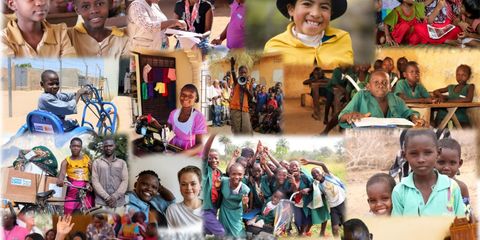OPENPlan: May 2023
This edition of OPENPlan explores three recently published studies from APAC and MEESA in relation to Sexual and Reproductive Health and Rights (SRHR) and Protection from Violence (PfV).
The studies demonstrate examples of good methodological practice, including ethical standards in relation to conducting MERL initiatives on sensitive topics, and importantly provide a wealth of recommendations and learnings that may prove useful for colleagues across Plan International.
The first report, ‘End-Project Evaluation on the Integration of Sexual and Reproductive Health and Rights in Technical and Vocational Education and Training (TVET) Program’, was a final evaluation of a five-year programme implemented by Plan International Cambodia in three provinces; Siem Reap, Ratanakiri, and Tboung Khmum. The evaluation used a mixed-methods approach including a Knowledge, Attitude, and Practice (KAP) quantitative survey, and qualitative Focus Group Discussions (FGDs) and Key Informant Interviews (KIIs), intending to assess the project progress in relation to the indicators in the project results framework; assess the progress of the project against the OECD/DAC criteria, including relevance, effectiveness, efficiency, impact, and sustainability; and draw conclusions and provide recommendations for future project designs and implementation.
The second report, ‘Child, Early and Forced Marriage- The Power of Norms that Force Girls to be Brides Early’, was a research study conducted by Plan International Vietnam. The study aimed to fill a knowledge gap around social and gender norms and CEFM in Vietnam. It used a mixed methods approach for primary data collection including In Depth Interviews (IDIs) and Focus Groups Discussions (FGDs), as well as a questionnaire survey. The findings were intended to make a number of recommendations to improve future programming.
The third report, ‘Our Voices, Our Future: Understanding Child Marriage in Food-Insecure Communities in Chiredzi District, Zimbabwe’, was a research
study which aimed to establish an evidence base on the drivers of child marriage in humanitarian settings with food insecurity and document the needs and priorities of adolescent girls. It also intended to understand the systems of support required to prevent and mitigate risks of child, early or forced marriage. This study used a mixed-methods approach for primary data collection which included participant-led storytelling via SenseMaker®, a mixed-methods research and analytics tool, and Key Informant Interviews (KIIs).
We hope you find this issue of OPENPlan insightful! Please see our noticeboard on page 24 for details on the Research and Evaluation Agenda Package and Ethics and Safeguarding in MERL.
ATB3202_OpenPlan_May2023_V5
5.58 mb


